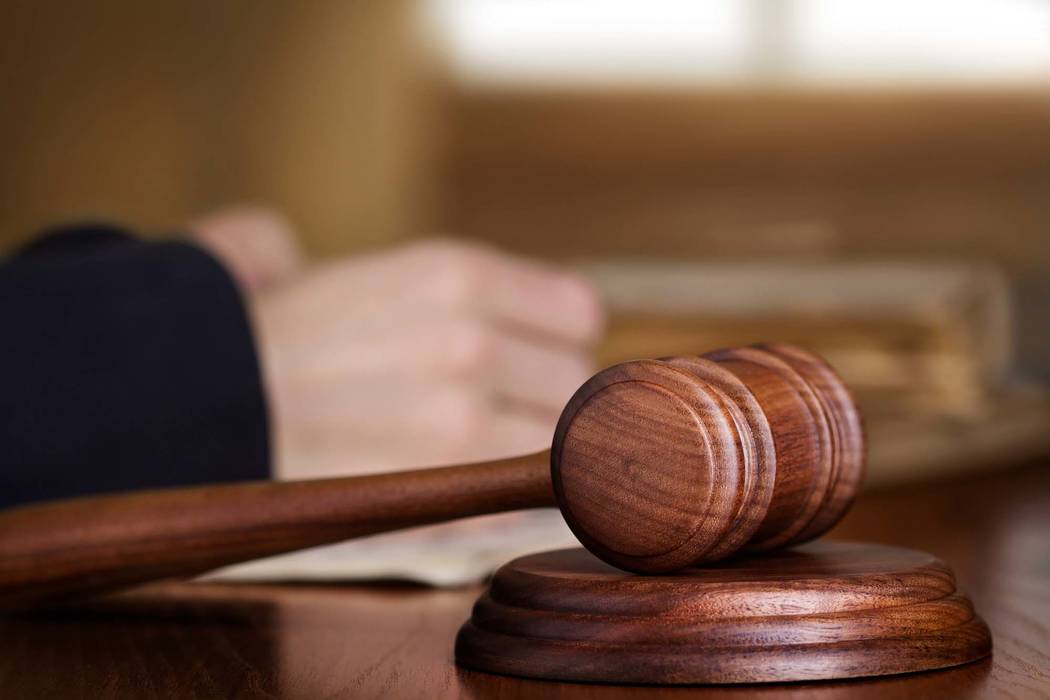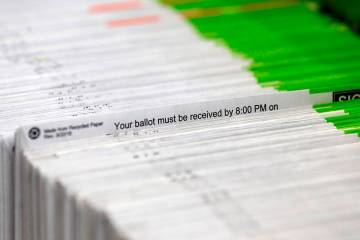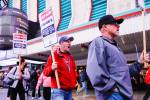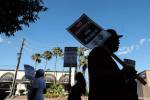EDITORIAL: U.S. Supreme Court to hear two free speech cases
The U.S. Supreme Court’s term heats up next week with two major free expression cases on the docket.
Perhaps the most significant case of the current session will be argued next Monday. In Janus v. AFSCME, the justices will determine whether the government may force public-sector workers to pay union fees even if they choose not to join a labor organization. The case has major ramifications for Big Labor’s progressive political activism, because a ruling against the union is likely to dry up a major source of revenue for the Democratic Party.
The case was brought by Mark Janus, a government worker in Illinois. He argues that forced dues violate his First Amendment rights by mandating that he subsidize union political messaging. Union officials claim they are simply trying to prevent so-called “free riders” and that the fees collected from non-members reflect only the cost of collective bargaining.
In fact, however, collective bargaining is an inherently political endeavor that touches on a whole host of hot-button issues, including government spending, public-sector pay and benefits and taxation. The free-rider concern — that non-union members ultimately benefit from any labor contract — could instead be addressed by rescinding the monopoly that labor organizations currently enjoy in contract negotiations.
It speaks loudly and clearly that when workers are free to make their own choices, they abandon government unions in droves — in Wisconsin, for instance, public-sector union membership has plummeted 40 percent since lawmakers enacted collective bargaining reforms in 2010.
Government workers should not be conscripted to financially support political causes with which they disagree. In Janus v. AFSCME, the Supreme Court should seize the opportunity to reinvigorate that vital concept.
The other First Amendment case on the upcoming docket stems from a Minnesota dispute over a law intended to prevent politicking at polling places. Many states, including Nevada, enacted such statutes after the justices in 1992 sanctioned a Tennessee law that banned the display or distribution of campaign materials or the solicitation of votes within 100 feet of an election site.
The Minnesota prohibition, however, goes much further. It outlaws any apparel “designed to influence and impact voting” or “promoting a group with recognizable political views.” When Andrew Cilek tried to vote in 2010, he was turned away because he showed up wearing a T-shirt featuring the Gadsen Flag and the words “Don’t Tread on Me.” He sued.
The Minnesota law is overly broad and could be arbitrarily interpreted to apply to virtually any message emblazoned on a hat or shirt. Should wearing a ball cap with military or union insignia prevent an individual from casting a ballot? How about an American flag lapel pin?
The law, while well-intentioned, goes too far. A ruling reflecting such would further bolster constitutional protections for free expression.




























